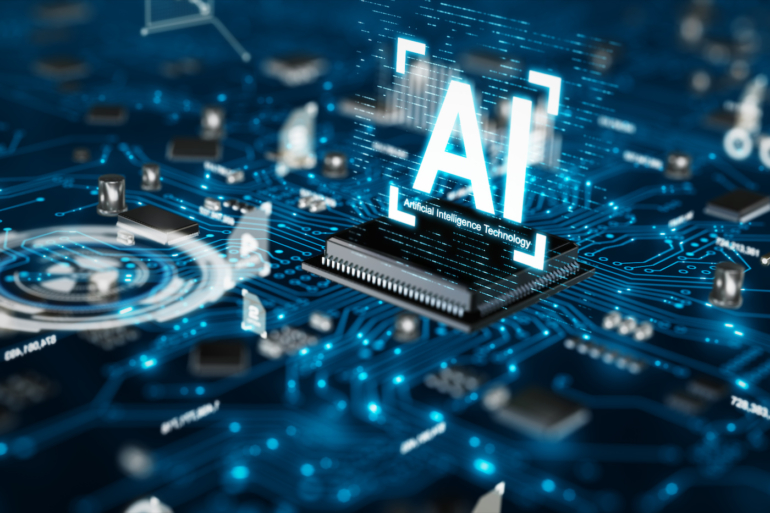
The adoption of AI has occurred at an almost unprecedented rate. Now, a report from the Technology Council of Australia and Microsoft suggests that generative AI alone could be worth $115 billion to the Australian economy by 2030.
That is assuming that the rate of adoption continues on its current trajectory. If things slow down a little, it could still boost the economy by $45 billion.
Microsoft has a vested interest in making this sound both impressive and transformative. After all, Microsoft has invested billions of dollars into OpenAI — a company that conveniently produces generative AI solutions.
SEE: Learn more about generative AI and how it works.
Nonetheless, AI being a revenue-generating resource isn’t new news, and it’s already having an impact on businesses and the economy, with some finding ways for it to boost productivity and efficiency and others finding themselves out of a job.
For now, IT professionals are relatively protected by AI. The most impacted sectors are finance and banking, media and marketing, and legal services, while the least impacted are manufacturing and factory workers, agriculture and healthcare. However, AI’s impact is almost certain to be universal, with Goldman Sachs predicting that the technology will replace 300 million full-time jobs by 2030.
The question is whether IT workers are genuinely ready to ride the wave of displacement that is about to wash over the country.
Jump to:
- Understand what AI can and cannot do
- Be prepared to change how you work
- Five quick tips for IT pros to prepare for the AI future
Understand what AI can and cannot do
The simple and blunt answer to the question of whether AI can replace a job is whether or not the job is process-heavy. AI is a glorified form of automation, and while it’s built on astronomically large sets of data, and is therefore potentially good at disseminating information, anything that relies on “thinking outside the box” is beyond the capabilities of AI.
That applies both now and into the future. AI will get better and more reliable. It’s going to support innovators and free them to do more creative thinking. It’s not going to lead them.
IT professionals should therefore focus on developing skill sets that extend beyond the process side of their work. Coding, software engineering and basic data analytics will be increasingly replaced by AI.
SEE: Take advantage of TechRepublic Premium’s prompt engineer hiring kit.
However, experienced IT professionals will be a step ahead of AI with their higher value skills. They’ll use the work AI does to enhance their own value within the organization. Project managers, specialists and those that can articulate IT into business outcomes will continue to find themselves valued by businesses.
And then there’s AI itself. Australia is on track to need another 161,000 AI specialists by 2030, so adding AI capabilities to your portfolio now is an effective way to prepare for the future.
Be prepared to change how you work
Another key shift that IT professionals will want to prepare themselves for is the shift away from full-time employment to a more contract-based form of work — call that “freelancing,” “consulting” or the “gig economy,” as you will. One of the benefits of having full-time employees is that they can be set tasks of low value that would become excessively expensive to give to a freelancer at contracting rates.
Those are also the tasks that will increasingly be taken over by AI, leaving full-time employees with a surplus of time they may or may not be able to fill with higher-value tasks. Organizations might use that as an opportunity to streamline their workforces.
However, the need for the valued skills those employees brought to their organizations in the first place will continue to be required, so what we’ll likely see is more organizations relying more heavily on freelance capabilities on a project-by-project basis. Indeed, as far back as 2018 McKinsey was reporting that 61% of organizations anticipated hiring more temporary employees. So, this shift may come as no surprise to some Australian IT professionals.
Working as a freelancer or consultant requires additional skills around business development, networking, time management and project management. It’s difficult for some, but IT professionals would do well to prepare themselves for the potential that they will spend at least some time working on a freelance basis in their future careers. Those that know they’ll struggle with the “business” side of freelance life should look into some basic business development and management courses to prepare themselves for this potential outcome.
Five quick tips for IT pros to prepare for the AI future
AI isn’t something for IT professionals to fear. There is always going to be work for the IT pros, it’s just a matter of being adaptable and flexible enough to move to where the opportunities lie. It’s important to consider the next few years as critical to career development to ensure that, as your role transforms, you are able to move with it. Those that can’t will be the “AI casualty” statistics that will get routinely written up in the media; however, while making the adjustments necessary to account for the impact of AI will require some focus, it will not be too onerous.
1. Continuous learning and upskilling
AI and related technologies are constantly evolving, so IT professionals must embrace lifelong learning and continuously update their skills. Investing time in learning AI programming languages, machine learning algorithms, and data science techniques will empower IT professionals to contribute effectively to AI-related projects and remain relevant in their roles.
2. Identify AI-augmented roles
Rather than fearing AI as a threat, IT professionals should recognize its potential to augment their existing roles. For instance, AI can assist in data analysis, predictive maintenance, cybersecurity and decision-making. By identifying these AI-augmented roles, IT professionals can position themselves as valuable assets in their organizations.
3. Develop a data-driven mindset
Data is the backbone of AI, and IT professionals should develop a data-driven mindset. They must understand how to collect, clean and analyze data to derive meaningful insights that can drive business decisions and improve AI models.
4. Cultivate creativity and problem-solving skills
While AI can handle many repetitive tasks, creativity and problem-solving abilities remain essential skills for IT professionals. AI is only as effective as the problems it solves. IT professionals who can creatively identify opportunities for AI implementation and effectively address complex challenges will be in high demand.
5. Ethical considerations in AI
With the increasing use of AI, ethical considerations have become paramount. IT professionals should familiarize themselves with the ethical implications of AI, including bias in algorithms, data privacy and the potential social impact. This will make them incredibly valuable to organizations that need that contextual awareness that AI lacks.








